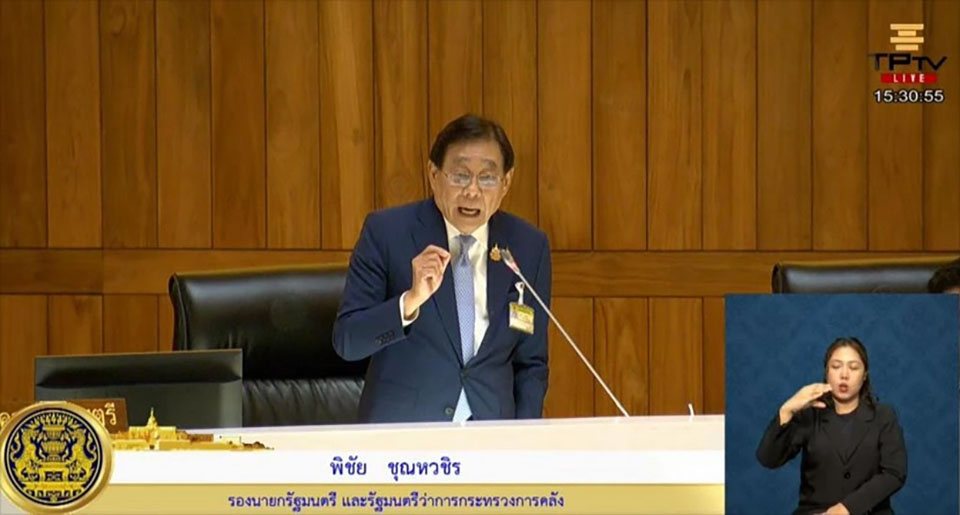
BANGKOK, Thailand – Deputy Prime Minister and Finance Minister Pichai Chunhavajira addressed the House of Representatives during the no-confidence debate, acknowledging Thailand’s prolonged economic stagnation, with GDP growth lingering at 1.9% for years. However, he expressed optimism, citing a 3.1% growth rate over the past six months and reaffirming the government’s commitment to achieving 3% GDP growth in 2025.
Pichai emphasized the need for structural economic reforms, particularly in agriculture and industrial investment. He noted that Thailand currently exports more rice than it consumes, with production at 17 million tons and domestic consumption at 11 million tons. To balance the market, he proposed reducing rice farming areas by 12 million rai (1.92 million hectares) and promoting alternative crops like corn, which could yield farmers THB 15,000-16,000 per rai annually.
Regarding industrial investment, he stressed that transforming Thailand’s automotive sector will take time, particularly in maintaining existing platforms while gradually shifting to hybrid technology for commercial vehicles. He also addressed the high electricity costs, stating that structural adjustments are necessary.
On tourism, Pichai acknowledged that while tourist arrivals have declined, efforts should focus on increasing visitors’ length of stay. He revealed that 35.5 million tourists visited Thailand last year, with 3 million coming for medical and wellness services.
Addressing national debt concerns, Pichai admitted that the government cannot afford to buy out Thailand’s total debt of THB 13.6 trillion. Instead, efforts will focus on assisting small debtors, particularly 3 million individuals burdened with non-performing loans totaling THB 120 billion. The pilot debt relief program launched by the Government Savings Bank (GSB) has already seen 450,000 applicants within three days.
Pichai also discussed liquidity solutions, including the potential use of a “G-token” system rather than issuing new currency, as the Bank of Thailand remains opposed to the introduction of stablecoins.
The government’s debt restructuring plan aims to extend repayment periods and prioritize struggling individuals over large-scale corporate debtors with collateral. By focusing on targeted assistance, Pichai hopes to alleviate financial distress for millions while maintaining fiscal stability.










